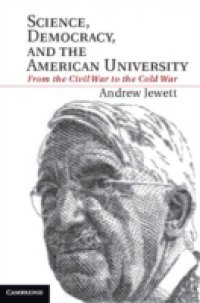| | | Science, Democracy, and the American University A introductory fragment is available | Language of a book: Английский Publisher: Gardners Books | |
|
| | This book reinterprets the rise of the natural and social sciences as sources of political authority in modern America. Andrew Jewett demonstrates the remarkable persistence of a belief that the scientific enterprise carried with it a set of ethical values capable of grounding a democratic culture - a political function widely assigned to religion. The book traces the shifting formulations of this belief from the creation of the research universities in the Civil War era to the early Cold War years. It examines hundreds of leading scholars who viewed science not merely as a source of technical knowledge, but also as a resource for fostering cultural change. This vision generated surprisingly nuanced portraits of science in the years before the military-industrial complex and has much to teach us today about the relationship between science and democracy. | | | Мой статус книги: | | |
|
{"b":"506752","o":30} |

